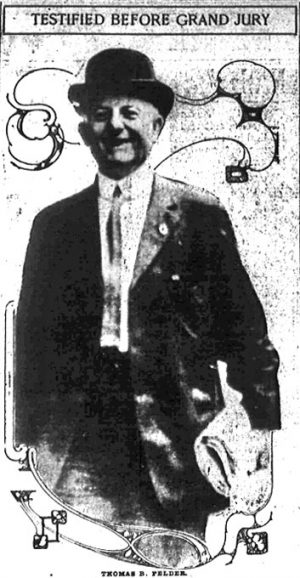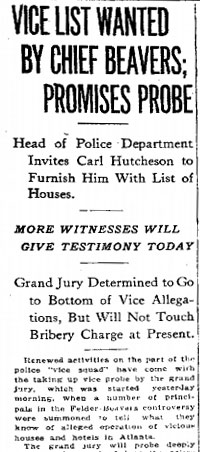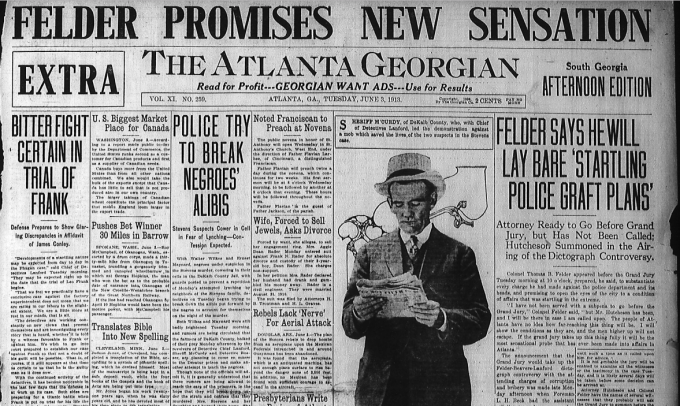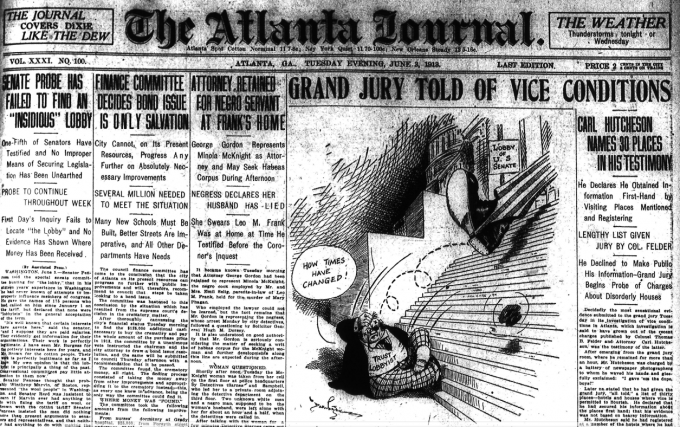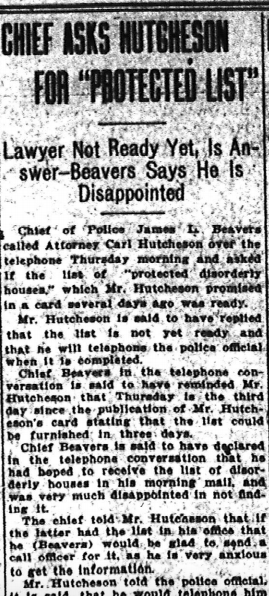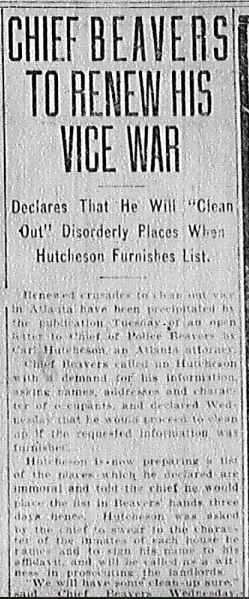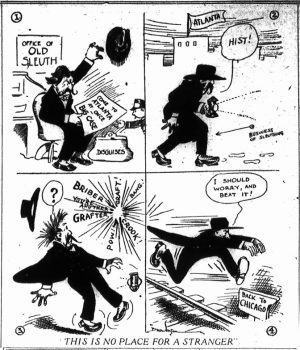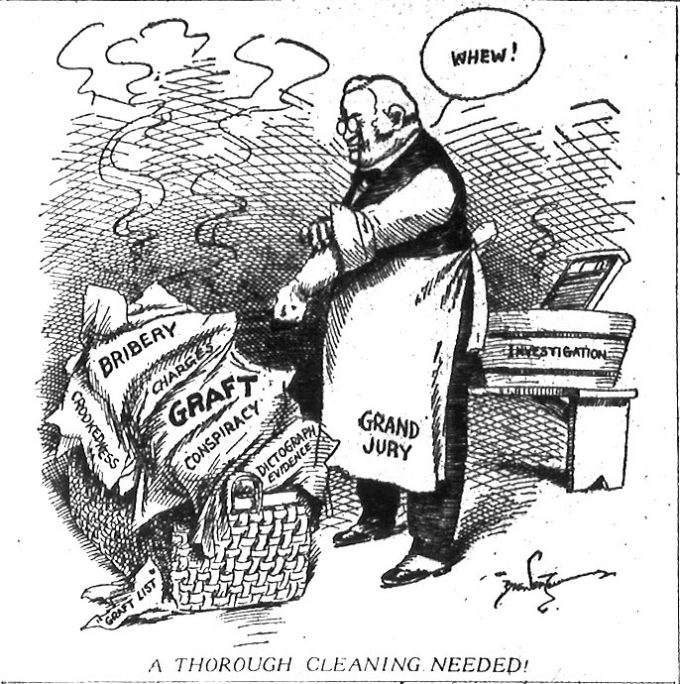 Another in our series of new transcriptions of contemporary articles on the Leo Frank case.
Another in our series of new transcriptions of contemporary articles on the Leo Frank case.
The Atlanta Georgian
Wednesday, July 2, 1913
No Indication Given of Results of Investigation of Reports of Disorderly Houses.
The result of the Grand Jury’s sensational vice probe of a few weeks ago will be made known Wednesday when the presentments are returned to Superior Judge W. D. Ellis, who two months ago charged that an extensive investigation be made.
Save when an indictment was returned against Police Commissioner W. P. Fain, which charged him with keeping a disorderly house and beating one of the women inmates, no inkling of the general trend of the probe got beyond the closed doors of the jury room.
When the probe first started the jury expected it to be completed in a day. It took a sensational turn when Colonel Thomas B. Felder charged Chief of Detectives Newport Lanford and his detectives with openly protecting vice, and the attorney stated he could submit to the jury a “vice list” that would “stand Atlanta on its head.”
List Given to Jury.

